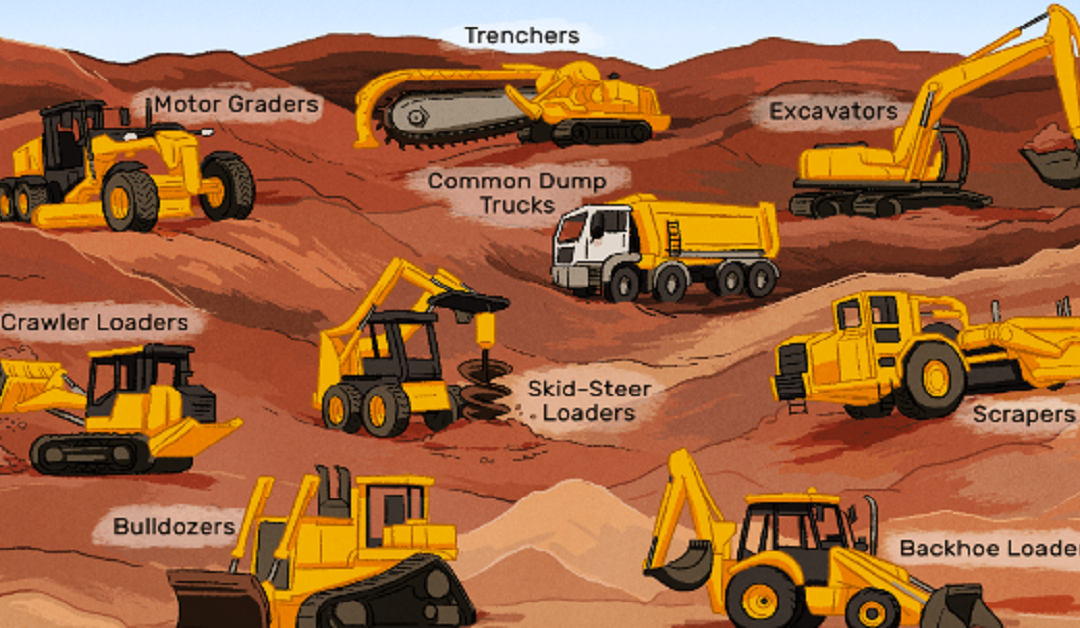How Oversee The Equipment Fleet via Rental
In the dynamic world of construction, managing your machine fleet can be a formidable task. https://vikingequipmentfinance.jimdoweb.com/ are turning to leasing as a adaptive option that allows for greater financial flexibility and access to the most recent machinery without the burdens of ownership. However, maneuvering through the landscape of building machinery leasing requires a sharp understanding of what to consider and the ideal partners to work with.
Choosing the suitable leasing provider can be the key factor between a profitable project and expensive delays. Factors such as equipment availability, lease terms, and client support play a key role in your decision. As you embark on this journey, it is important to know what makes a lease company dependable and how to recognize potential red flags. This piece aims to give you with insightful information on how to efficiently manage your equipment fleet through leasing, ensuring that you make informed choices that satisfy your building needs. ### Choosing the Right Leasing Partner

In the realm of construction equipment leasing, choosing the appropriate partner can significantly affect the success of your projects. Start by looking for a leasing company with a demonstrated history of success. Investigate their standing within the industry, as well as customer reviews and testimonials. A reliable lease provider should have a solid history of pleased customers and a record of providing quality equipment on time. This basis will give you confidence that they can adhere to your project schedules and equipment needs.
Consider the range of equipment offered by prospective leasing partners. The ideal leasing provider should provide a wide selection of equipment choices that fit your specific needs. If you need heavy machinery or specialized tools, a diverse fleet will allow you to expand your capabilities without the burden of purchasing and maintaining a wide array of equipment. Make sure to assess their equipment availability and how quickly they can respond to your requests to avoid delays in your projects.
Lastly, prioritize customer support and communication when choosing a leasing partner. A trustworthy equipment lease provider will not only focus on the transaction but will also be available to assist with any issues that may come up during the lease term. Examine how responsive they are to questions and concerns, and ensure they offer comprehensive support services. This level of support can be crucial, especially during key stages of the project when delays can be expensive.
Key Factors in Equipment Leasing
When entering into a infrastructural equipment lease, various key factors should be evaluated to ensure the partnership aligns with your project's requirements. A crucial aspect is the flexibility of the lease terms. Every construction project is one-of-a-kind, and having the ability to change lease terms according to your evolving needs can substantially impact your overall success. A lease that permits modifications such as equipment upgrades or changes in rental periods can assist you stay agile to site demands.
A further important factor is the quality and reliability of the equipment being leased. It’s essential to choose a leasing company that provides well-maintained and up-to-date tools. Reliability is key in the construction industry, as downtime can lead to missed deadlines and increased costs. Conducting thorough research on the equipment’s condition, along with understanding the maintenance policies of the leasing company, will help you avoid potential operational issues.
Lastly, assess the financial implications of the lease, including understanding any hidden fees that may not be accounted in the initial agreement. This can cover costs associated with maintenance, insurance, and early termination penalties. A clear leasing provider that offers clear explanations of all fees can ensure you’re getting a fair deal. Ensure you ask the correct questions and carefully review the lease terms to avoid unexpected expenses that can strain your project budget.
Eluding Common Rental Errors
One of the primary frequent errors contractors commit when leasing building equipment is neglecting to examine the detailed print. Lease contracts can have intricate terms that may seem benign at initial view. It is vital to carefully inspect the lease terms, including payment timelines, maintenance duties, and lease completion options. Failing to comprehend these fine points can lead to unforeseen costs and obligations down the road.
Another frequent trap is not fully evaluate the leasing company. Selecting a supplier solely based on reduced rates can result in compromising on quality and service. Always look into potential lease vendors for their standing, customer support, and availability. A reliable partner will not only offer attractive pricing but also guarantee clarity and be eager to address any issues or inquiries throughout the leasing period.
Finally, many contractors ignore the importance of aligning equipment choices with project needs. Before entering into a lease, assess the specific requirements of your upcoming projects. Leasing equipment that doesn't meet the precise demands can lead to downtime and wasted resources. Make sure that the leased equipment fits the tasks at hand and has the necessary features to enhance productivity on your job site.